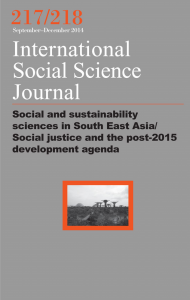The VA Backlog
The U.S. Department of Veterans Affairs handles the claims, benefits, and memorial services for veterans as well as provide services for their spouses and dependents. However a long-standing problem with this office is the expected turn around with claims processing that often leaves many veterans and their families without adequate healthcare or other benefit support. Given the debate in the United States with the Affordable Care Act and its comparability to other Western Hemisphere countries that have initiated universal healthcare,...







1475-6781/asset/JSS.gif?v=1&s=377bb8e0c3d0fcf201f301ded7cf610142072c3e)
